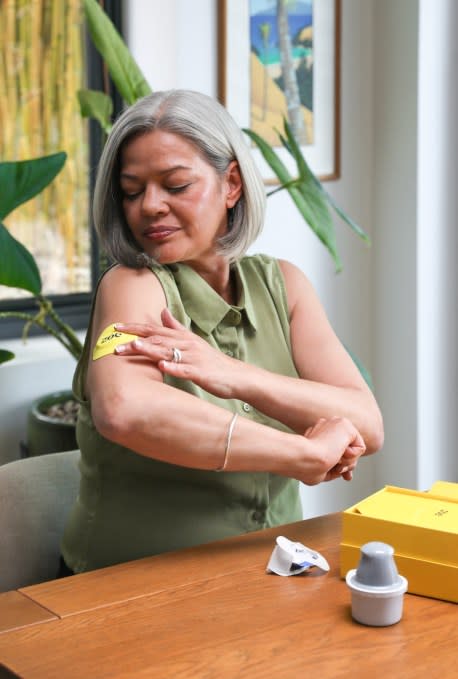Zoe, a microbiome-focused nutrition company, raises $15 million to expand in the U.S.
Zoe, a nutrition company based in London, is expanding its presence in the United States after raising $15 million in a Series B extension.
Here’s how it works: Zoe sends customers at-home testing materials to collect blood or feces to test blood fat, blood sugar, and gut microbiome health. Following those results, the company scores every food (on a scale from 0 to 100), so people can make better choices of what to eat.

Along the way, Zoe teaches users how to swap, add, and combine foods so you can eat in the best way for your body. For example, it might advise a user to swap out toast with peanut butter, bananas, and sliced almonds for toast with cream cheese, avocado, and chia seeds. It also tracks their progress with continued gut microbiome testing.
The new investment comes from the U.S.-based investment company Coefficient Capital and gives Zoe $118 million in total funding to date, including a £25 million ($30 million at the time) raise in 2022.
The latest raise follows the completion of a randomized controlled trial published in Nature Medicine in May 2024. The trial looked at the effects of personalized nutrition on cardiometabolic health. This is among 60 peer-reviewed scientific papers Zoe has published over the past seven years, and is meant to counter the perception that microbiome mapping is squishy science.
Company CEO Jonathan Wolf explained that the trial is the same thing that is done for vaccines or drugs, and is the “gold standard in medicine." It’s a full trial where you compare the intervention — in this case, Zoe’s membership — against the control, or basic standard of care in the U.S. and dietary guidelines.
What makes it interesting, other than finding out the results, is that the researchers are obliged to publish the outcome, no matter what it says.
“As a CEO, it’s terrifying to go into this RCT because you are committed,” Wolf told TechCrunch. “If it proves that Zoe doesn't work, you've got to publish it.”
The research showed Zoe did work and “comprehensively outperformed the control,” he said. Results showed that using Zoe can improve biological markers after three to four months, and also made a positive impact on how people felt, something Wolf said he wasn’t expecting. For example, Zoe users reported improvements to mood, sleep, and energy.
Losing weight has always been a trend, but is particularly hot now with the rise of GLP-1 injectables like Ozempic and Wegovy, However, Wolf was clear that Zoe wasn’t going after weight loss. Instead, the company is focused on nutrition, and better nutrition often leads to weight loss.
“Nutrition has been horrendously understudied because there's been no money in it from pharmaceutical companies,” Wolf said. “Therefore, advice is often ‘eat more vegetables.’ And most of the advice that we have been taught has turned out to just be wrong. For example, if you need to lose weight, you should go on a calorie-controlled diet. All the latest nutritional science says that calorie-controlled diets do not work for 80% of people.”
Wolf didn’t disclose financial numbers but did say that the company had virtually no revenue two years ago. Now its paid customer base has risen to more than 100,000. Most are purchasing a 12-month subscription, which costs $29 per month in the U.S., or $348 per year.
The company’s products are available in the United States everywhere except New York, due to regulatory challenges that Wolf and his team are working through. The new funding will help the company increase its presence in the U.S.
“We are going to start investing in marketing because there are millions of people we know we can help in the States,” Wolf said. “For the first time, the product is ready and mature enough for us to do that.”
